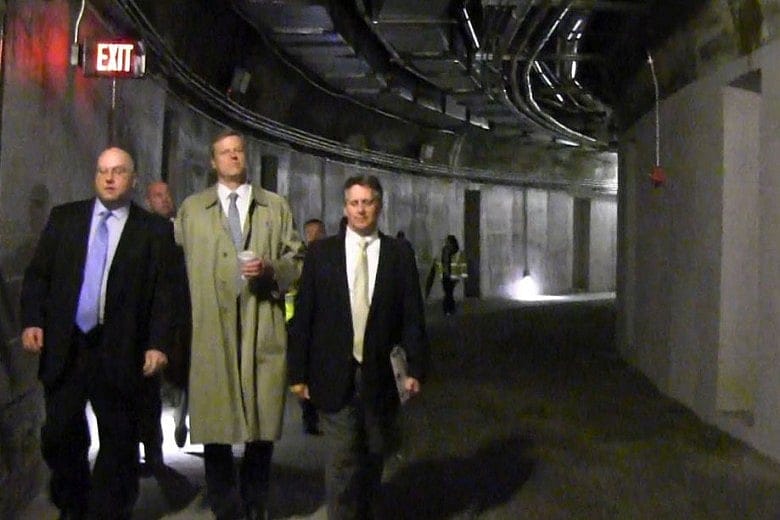Baker: MBTA ‘far better prepared’ for whatever winter brings

BOSTON — Standing in the cold drizzle Wednesday morning, Gov. Charlie Baker got an up-close look at some of the equipment the MBTA will entrust to keep the tracks clear and the trains running this winter, and said he expects to be involved in decision making at the T during major snow storms.
Soon after Baker was inaugurated in January, the T and commuter rail were paralyzed by a series of snow storms, leading to delays, cancellations and vows to improve service. Baker said he often jokes that last winter "scarred" him.

